Secondary menu
Our Distinguished Advisory Board
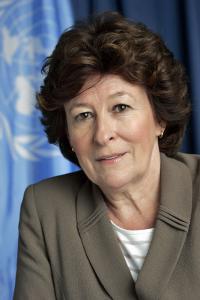 Hon. Louise Arbour
Hon. Louise Arbour
Louise Arbour is currently the United Nations Special Representative for International Migration. From 2009 to 2014, she served as President and CEO of the International Crisis Group and, previously she acted as United Nations High Commissioner for Human Rights from 2004 to 2008.
Ms. Arbour, a Canadian national, began her academic career in 1974. From 1974 to 1987, she was a law professor at Osgoode Hall Law School, York University in Toronto, Canada. In her final year, she served as Associate Dean. In 1987, she was appointed to the Supreme Court of Ontario (High Court of Justice) and in 1990 to the Court of Appeal for Ontario. In 1995, Ms. Arbour was appointed Commissioner to conduct an inquiry into the Prison for Women in Kingston, Ontario.
In 1996, Ms. Arbour was appointed by the Security Council of the United Nations as Chief Prosecutor for the International Criminal Tribunals for the former Yugoslavia and for Rwanda. In 1999, she was appointed to the Supreme Court of Canada, where she served until 2004.
Ms. Arbour graduated from College Regina Assumpta, Montreal in 1967 with a B.A. and completed an LL.L. (with distinction) from the Faculty of Law, University of Montreal in 1970. She was called to the Quebec Bar in 1971 and the Ontario Bar in 1977. Ms. Arbour has received many honourary doctorates, as well as more than forty medals and awards. She is a member of many distinguished professional societies and organizations.
Ms. Arbour is an Honorary Fellow of the Royal College of Physicians and Surgeons of Canada and Companion of the Order of Canada. In June 2009, she became a Grand Officer of the Ordre national du Québec. In 2010, she received the Colombian Order of National Merit, Grand Cross class and was named Commander of the French Legion of Honour.
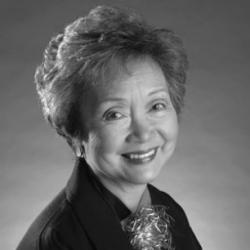 Hon. Adrienne Clarkson
Hon. Adrienne Clarkson
Universally acknowledged to have transformed the post of Governor General, Adrienne Clarkson was born in Hong Kong in 1939 and came to Canada as a refugee with her family in 1942. They settled in Ottawa, where she attended public schools until graduating from Lisgar Collegiate Institute in 1956. She obtained both an Honours B.A. and an M.A. in English Literature from the University of Toronto, followed by post-graduate studies at La Sorbonne in France.
Madame Clarkson has had a rich and distinguished career in broadcasting, journalism, the arts, and public service. She worked as host, writer, and producer of several influential programs on CBC Television, including Take Thirty, Adrienne at Large, and The Fifth Estate, for nearly 30 years. She authored five books and contributed numerous articles to major newspapers, magazines, and anthologies across Canada.
Madame Clarkson served as Agent-General for Ontario in Paris from 1982 to 1987, promoting Ontario’s business and cultural interests in France and Italy. From 1987 to 1989, she was president and publisher of McClelland & Stewart. Madame Clarkson returned to television until 1999. During this period, she directed several films including Artemisia (1997), the story of one of Western Art’s greatest female painters, Artemisia Gentileschi, and The Lust of His Eye(1994), arguably one of Canada’s greatest internationally known artists of the early 20th Century.
Madame Clarkson served as Chairwoman to the Board of Trustees of the Museum of Civilization in Hull, Québec and as President of the Executive Board of the International Music Centre, based in Vienna, Austria.. Her work has been recognized with dozens of awards, including honourary doctorates. She was appointed as a Senior Fellow at Massey College, University of Toronto, and as an Honourary Fellow of the Royal Society of Canada, the Royal College of Physicians and Surgeons, Trinity College, and the Royal Architectural Institute of Canada. She was honoured abroad with the Grand Cross of the Order of Pleiades from France in 2001 and the Order of Friendship of the Russian Federation in 2006, the only Canadian to be so honoured. SIn recent years, she has chaired juries for the Glenn Gould Prize, the Giller Prize, the Banff World Television Festival’s Awards, the Gold Medal for Architecture, and the Man Asian Literary Prize.
Madame Clarkson was sworn in as Canada’s 26th Governor General on 7 October 1999. Her tenure as Governor General was remarkable for the considerable attention she brought to the courage and commitment of Canada’s Armed Forces. She visited and inspired troops in Kosovo, the Persian Gulf and Afghanistan and moved and educated Canadians with her tributes to the Unknown Soldier and Canada’s war veterans. Particularly memorable was her role in comforting the nation and the families of the four soldiers killed in the tragic “friendly fire” incident in April 2002. She demonstrated her commitment to the families of Canadian soldiers by traveling to Germany to visit with the wounded and attending memorial ceremonies for soldiers killed in action. In the process, she increased our vigilance to Canada’s commitment to international peace and security. As a result of her close ties with the Armed Forces, Madame Clarkson became Colonel-in-Chief of the Princess Patricia’s Canadian Light Infantry on 17 March 2007. She was the first Canadian to be Colonel-in-Chief of a Canadian regiment.
Her passionate interest in Canada’s North and in the circumpolar nations as a whole led to a hugely successful state visit to the Russian Federation, Finland and Iceland in 2003. She established the Governor General’s Northern Medal, awarded annually to an individual who has contributed outstandingly to our understanding and development of the North.
Madame Clarkson actively promoted tolerance, acceptance, belonging, and public responsibility in her work as Governor General and as a broadcaster, writer, diplomat and cultural champion. National Post Columnist John Fraser remarked that Madame Clarkson “has the ability, unique among public officials, of making Canadians feel good about themselves and their country.” This talent was recognized by the Blood Tribe of Alberta who adopted her as an honourary chief. Madame Clarkson is proud to retain her new title “Grandmother of Many Nations.” Her official titles include membership in the Queen’s Privy Council for Canada (PC), Companion of the Order of Canada (CC), Commander of the Order of Military Merit (CMM), Commander of the Order of Merit of the Police Forces (COM) and the Canadian Forces Decoration (CD).
Since leaving the office of Governor General in 2005, Madame Clarkson co-founded the Institute for Canadian citizenship (ICC) with her husband, John Ralston Saul. The Institute’s purpose is to help acculturate new Canadian citizens into mainstream Canadian life through initiatives such as community citizenship ceremonies with roundtable discussions, cultural vouchers to introduce new citizens to cultural activities and museums, and a program to increase awareness and use of our wilderness parks.
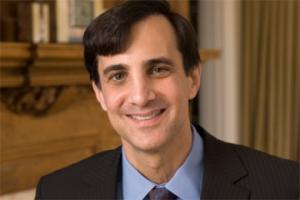 Ronald Daniels
Ronald Daniels
In March 2009, Ronald J. Daniels became the 14th president of The Johns Hopkins University and a professor in the Political Science Department. Under his leadership, the university has launched a series of multidisciplinary initiatives to advance the understanding of society’s issues, including individualized health and challenges facing urban environments. He has also championed a university-wide vision for innovation, bolstering efforts to translate discoveries into novel technologies.
Mr. Daniels has worked to strengthen the student experience. During his time as president, the university has increased the financial aid budget for undergraduates, committed millions to graduate stipend supplements, launched the Gateway Science Initiative, and established the first university-wide board to advocate for and support Ph.D. programs. Mr. Daniels has also been personally involved in a revitalization plan in East Baltimore. He serves as chair of the executive committee of Johns Hopkins Medicine.
From 2005 to 2009, Mr. Daniels was provost and professor of law at the University of Pennsylvania. As Penn’s chief academic officer, he had broad responsibility for undergraduate and graduate education, faculty affairs, research and technology transfer, global initiatives, student life, athletics, admissions, arts and culture, and libraries.
Mr. Daniels is a vigorous advocate for interdisciplinary scholarship and teaching. Under his leadership, Penn launched a no-loan financial aid initiative for undergraduates, increased graduate student stipends, and created university-wide research initiatives in public health, regenerative medicine neuroscience, nanoscience, and translational medicine. He was also involved in implementing Penn Integrates Knowledge, which recruited eminent interdisciplinary scholars to Penn to hold joint appointments in more than one of Penn’s schools.
Throughout his career, Mr. Daniels has been deeply committed to the role of universities in promoting global understanding. He expanded Penn’s global relationships, especially with the government and university of Botswana in their efforts to fight HIV and AIDS; initiated programs that draw global leaders, writers, and activists to Penn’s campus; and developed the Penn World Scholars Program, which enables some of the most outstanding applicants from the developing world to attend Penn as undergraduates.
Mr. Daniels also increased Penn’s engagement with local and national issues through such initiatives as a month-long Summer Mentorship Program, in which high school students from the Philadelphia school system work directly with Penn faculty members. He spearheaded a national research conference on Capitol Hill, focused on the policy dimensions of Hurricane Katrina, that took place within three months of the disaster and resulted in the published volume On Risk and Disaster: Lessons from Hurricane Katrina.
Mr. Daniels came to Penn from the University of Toronto, where he began his career as a professor in 1988. From 1995 to 2005, he was Dean of the Faculty of Law and James M. Tory Professor of Law. During his ten years as Dean, he doubled the size of the faculty; recruited global scholars; cut the student-faculty ratio (from 18 to 1 to 10 to 1); dramatically enlarged the endowment; increased financial aid; implemented comprehensive reforms of curricula, student services, and faculty research standards; and spearheaded initiatives to strengthen international recruitment, social engagement, and interdisciplinary programs. He initiated a program to teach law and justice at two inner-city high schools; co-founded International Lawyers and Economists Against Poverty; and founded and chaired Pro Bono Students Canada, which places more than 2,000 law students each year in community-based organizations across Canada.
While in Toronto, Mr. Daniels was an active participant in Canadian public policy formulation in such positions as chair of the Provincial Government Panel on the Future of Government, chair of the Ontario Task Force on Securities Regulation, chair of the Ontario Electricity Market Design Committee, the special advisor to the Ontario Government on Reform of Public Accounting Regulation, and member of the Toronto Stock Exchange Committee on Corporate Governance. He also served as president of the Council of Canadian Law Deans, president of the Council of Ontario Law Deans, and member of the Board of Governors of Mount Sinai Hospital in Toronto.
Mr. Daniels’ research focuses on the intersections of law, economics, development, and public policy in areas such as corporate and securities law, social and economic regulation and the role of law and legal institutions in promoting third world development. He is the author or co-author of seven books and dozens of scholarly articles. He has been visiting professor and Coca-Cola World Fellow at Yale Law School and John M. Olin Visiting Fellow at Cornell Law School. In 2009, he was elected a fellow of the American Academy of Arts and Sciences.
Mr. Daniels received a B.A. in political science and economics from the University of Toronto in 1982, graduating with high distinction. He went on to earn a J.D. in 1986 from the University of Toronto, where he served as co-editor-in-chief of the law review and earned several academic honors, and an LL.M. from Yale University in 1988.
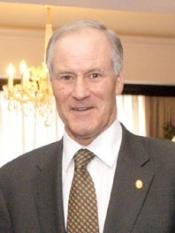 Hon. Bill Graham
Hon. Bill Graham
William Carvel "Bill" Graham is a former Canadian politician, who was first elected as a Liberal MP in 1993. He served as chairman of the House of Commons Standing Committee on Foreign Affairs and International Trade, Minister of Foreign Affairs, Minister of National Defence, and Leader of the Opposition and interim Leader of the Liberal Party of Canada. He is currently participating in the Government of Canada’s Defence Review as a member of the Minister’s Advisory Panel for Defence Minister Harjit Sajjan.
Since his departure from electoral politics in 2007, Mr. Graham has been active in a number of organizations and business concerns. He served as Chancellor at Trinity College, University of Toronto. He is also a Senior Fellow of Massey College and Visitor at Green College, Chair of the Atlantic Council of Canada, Co-Vice-Chair of the Canadian International Council, and a member of the Trilateral Commission. Mr. Graham is the Honourary Lieutenant-Colonel of the Governor General's Horse Guards, received an honourary doctorate from the Royal Military College of Canada in 2010, and has been a member of the Queen's Privy Council for Canada since 2002. He has received various honours for his services to the French language and culture in Ontario, including appointment as Chevalier of the Legion d'Honneur and Chevalier d'Ordre de la Pleiade.
Mr. Graham earned his Honours B.A. in modern history at the University of Toronto and completed his LL.B. at the University of Toronto in 1964, where he was the Gold Medalist. He then pursued a doctorate in law at the University of Paris. Prior to entering politics, Mr. Graham practiced law at Fasken & Calvin and taught at the Faculty of Law, University of Toronto.
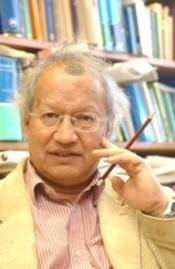 Professor Yash Ghai
Professor Yash Ghai
Yash Ghai is a Professor Emeritus of Constitutional Law at the Faculty of Law, University of Hong Kong. He was born in Kenya and was trained as a lawyer at Oxford and Harvard. He participated in founding the first law school in East Africa, based in Dar es Salaam, Tanzania, and taught in a number of countries, including Tanzania, the US, United Kingdom, Sweden, and Hong Kong. He retired in 2005 from the University of Hong Kong. His primary interests are constitutions arising out of conflict, particularly ethnic conflict, as well as human rights. In most of his research he adopts a comparative approach, and tries to locate constitutions and law within a broad political and societal framework. He is also interested in political and constitutional issues of autonomy, particularly in the context of Greater China. Some of his principal writings have been published in non-legal journals.
During his academic career, Mr. Ghai combined his teaching and research with advisory work. He has consulted on negotiating or making constitutions for over twenty countries, including Tanzania, Nepal, Papua New Guinea, Fiji, Seychelles, Afghanistan, Maldives, Cambodia, and East Timor. He chaired Kenya's constitutional review from 2001-04 and established the Katiba Institute in 2011. Mr. Ghai also served as head of the Constitution Advisory Support Unit of the UNDP in Nepal, United Nations Special Representative for Human Rights in Cambodia, and an advisor to the Constitution Committee of the National Assembly of Iraq.
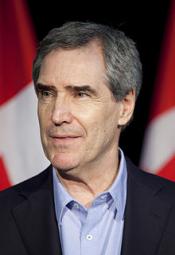 Michael Ignatieff
Michael Ignatieff
Michael Ignatieff is a university professor, writer, and former politician. Currently, he is the Rector and President of Central European University in Budapest. From 2000 to 2005, he served as a Professor of Practice and Director of the Carr Centre for Human Rights Policy at the Kennedy School of Government, Harvard University. Between 2006 and 2011, he was the Canadian Member of Parliament for Etobicoke Lakeshore, and Deputy Leader and Leader of the Liberal Party of Canada. After departing from politics, Mr. Ignatieff was also a Senior Resident Fellow at Massey College and a professor at the Munk School of Global Affairs, University of Toronto. He served as Centennial Chair at the Carnegie Council on Ethics and International Affairs in New York from 2012 to 2015. From 2013 to 2016, he was Edward R. Murrow Professor of the Practice of the Press, Politics and Public Policy at Kennedy School of Government, Harvard University. He is a member of the Queen’s Privy Council for Canada and holds eleven honourary degrees.
Mr. Ignatieff earned his Honours B.A. in history in 1969 from the University of Toronto, his Ph.D. in history in 1976 from Harvard University, and his M.A. in 1978 from Cambridge University.
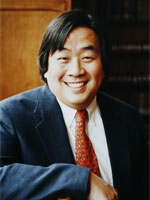 Professor Harold Koh
Professor Harold Koh
Harold Hongju Koh is an American lawyer and legal scholar. Mr. Koh began teaching at Yale Law School in 1985 and served from 2004 until 2009 as its fifteenth Dean. From 1998 to 2001, he served as U.S. Assistant Secretary of State for Democracy, Human Rights and Labor, and previously had served on the Secretary of State's Advisory Committee on Public International Law. From 2009 to 2013, he took leave as the Martin R. Flug ’55 Professor of International Law to serve as the Legal Adviser of the Department of State. He returned to his current position at Yale Law School as the Sterling Professor of International Law.
Mr. Koh is a leading expert on public and private international law, national security law, and human rights. He has argued before the United States Supreme Court and he has testified before the U.S. Congress more than twenty times. He has been awarded seventeen honorary degrees, three law school medals and has received more than thirty awards for his human rights work. He is recipient of the 2005 Louis B. Sohn Award from the American Bar Association International Law Section and the 2003 Wolfgang Friedmann Award from Columbia Law School for his lifetime achievements in International Law. He is author or co-author of eight books, including Transnational Litigation in United States Courts, Foundations of International Law and Politics (with O. Hathaway); Transnational Legal Problems (with H. Steiner and D. Vagts),Transnational Business Problems (with D. Vagts and W. Dodge), and The National Security Constitution, which won the American Political Science Association's award in 1991 as the best book on the American Presidency. He was also the editor of The Justice Harry A. Blackmun Oral History Project (1994-95). He has published more than 150 articles on international human rights, international business transactions, national security and foreign affairs law, international trade, international organizations, international law and political science, and procedure.
He is a Fellow of the American Academy of Arts and Sciences and the American Philosophical Society, an Honorary Fellow of Magdalen College, Oxford, a former Visiting Fellow at All Souls College, Oxford, and a member of the Council of the American Law Institute. He has held fellowships from the Guggenheim Foundation and the Century Foundation. He has sat on the following boards: Overseers of Harvard University, Directors of the Brookings Institution, Human Rights First, the American Arbitration Association, and the National Democratic Institute. He has been named one of America's “45 Leading Public Sector Lawyers Under The Age of 45” by American Lawyer magazine and one of the “100 Most Influential Asian-Americans of the 1990s” by A magazine.
A Korean-American native of Boston, Mr. Koh holds a B.A. degree from Harvard College and B.A. and M.A. degrees from Oxford University, where he was a Marshall Scholar. He earned his J.D. from Harvard Law School, where he was Developments Editor of the Harvard Law Review. Before coming to Yale, he served as a law clerk for Justice Harry A. Blackmun of the United States Supreme Court and Judge Malcolm Richard Wilkey of the U.S. Court of Appeals for the D.C. Circuit, practiced law at Covington and Burling, and served as an Attorney-Adviser for the Office of Legal Counsel at the U.S. Department of Justice.
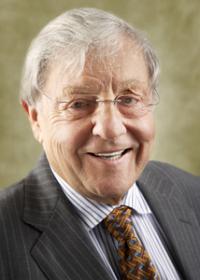 Hon. Roy McMurtry
Hon. Roy McMurtry
Roland “Roy” McMurtry serves as senior counsel to Hull & Hull LLP, providing strategic counsel to clients.
Prior to joining Hull & Hull in September 2014, Mr. McMurtry practised law as a trial counsel for 17 years before being elected to the Ontario Legislature in 1975. Upon election, he was appointed to the Cabinet of Premier William G. Davis as the Attorney General for Ontario, a position he held until 1985. As Attorney General, he oversaw an unparalleled era of law reform in Ontario, including bilingualism in the courts, multiculturalism, and family law reform. He was deeply involved in the patriation of the Canadian Constitution and the creation of the Canadian Charter of Rights and Freedoms. During that period, he also served for four years as the Solicitor General for Ontario.
In 1985, Mr. McMurtry was appointed Canada’s High Commissioner (Ambassador) to Great Britain, a post which he held until late 1988. In 1991 he was appointed Associate Chief Justice of the Superior Court and then Chief Justice of that Court in 1994. In February 1996, he was appointed Chief Justice of Ontario, a capacity in which he served for over 11 years until May 30, 2007. From 2008 to 2014, Mr. McMurtry served as Chancellor of York University. During this time, he also was a member of the advocacy department in Gowlings' Toronto office, where he served as counsel to the Firm.
Mr. McMurtry completed his Honours B.A. in history at the University of Toronto in 1954 and his LL.B. at Osgoode Hall Law School in 1958.
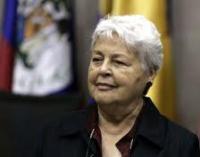 Justice Cecilia Medina Quiroga
Justice Cecilia Medina Quiroga
Cecilia Medina Quiroga is a Chilean lawyer (University of Chile) and Doctor in Law (University of Utrecht). She teaches International Human Rights Law at the Law Faculty of the University of Chile and is the Co-Director of the Law Faculty’s Human Rights Center. She has taught in several European and North American Universities and was appointed to the Robert F. Kennedy Chair for distinguished Latin American academics at Harvard Law School in 1997.
She is a former member (1995-2002) and Chairperson (1999-2000) of the United Nations Human Rights Committee. She served as a judge on the Inter-American Court of Human Rights from 2004 to 2009, and acted as the Court’s president in her final year. She has worked as an expert and advisor for many international and national organizations, is a member of the editorial board of the Netherlands Quarterly of Human Rights and of the Editorial Review Board of the Human Rights Quarterly, and has published extensively in the field of International Human Rights Law.
In recognition of her work, Ms. Medina Quiroga has received a number of awards including the 2009 Chilean Women’s Leadership Award, the 2006 Gruber Women’s Rights Prize, the 2004 Elena Caffarena Award, and the 2003 Prominent Women in International Law Award from the American Association of International Law. She has also been given the 2002 Equality Now award for lifelong commitment to Human Rights. She is a Ridder of the Order Oranje Nassau, decoration of the Kingdom of the Netherlands.
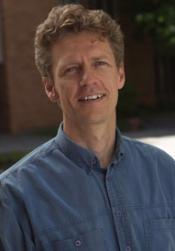
Dr. James Orbinski
James Orbinski’s research interests focus on medicine and humanitarianism; the emerging discipline of global health; and equitable access to health care and health care technologies. As of September 2012, Dr. Orbinski is the CIGI Research Chair in Global Health at the Balsillie School of International Affairs and professor of International Policy and Governance at Wilfrid Laurier University. At the University of Toronto, he is a full professor of Medicine at the Dalla Lana School of Public Health and a Senior Fellow at Massey College and the Munk School of Global Affairs.
A medical doctor with extensive field experience with Médecins Sans Frontiéres (MSF), Dr. Orbinski was elected international president of the organization from 1998 to 2001, and launched its global Access to Essential Medicines Campaign in 1999. In 1999 he accepted the Nobel Peace Prize awarded to MSF for its pioneering approach to medical humanitarianism and its commitment to witnessing. Dr. Orbinski has represented MSF in numerous humanitarian emergencies and on critical humanitarian issues in Sudan, Kosovo, and numerous other countries. He has also represented MSF at the UN Security Council, the WHO, the UNHCR, and in many national parliaments. Dr. Orbinski worked as MSF’s Head of Mission in Goma, Zaire in 1996-1997 during the refugee crisis and in Kigali during the Rwandan genocide of 1994. He was MSF’s medical coordinator in Jalalabad, Afghanistan in the winter of 1994 and in Baidoa, Somalia during the civil war and famine of 1992-1993. Dr. Orbinski’s first MSF mission was in Peru in 1992.
From 2001 to 2003 he became chair of MSF's Neglected Diseases Working Group that created the Drugs for Neglected Diseases Initiative (DNDi), a global not-for-profit drug development enterprise that develops drugs and other health technologies for diseases largely neglected by profit driven research and development companies. He has remained on the board of the DNDi which has developed and delivered 6 new treatments and is working on 17 others for Chagas disease, leishmaniasis, and malaria, while building sustainable research capacity in disease-endemic countries.
Dr. Orbinski received his B.Sc. in Psychology from Trent University in 1984, an M.D. degree from McMaster University in 1990, and an M.A. in International Relations from the University of Toronto in 1998. He has held a Medical Research Council of Canada fellowship to study paediatric HIV in Sub-Saharan Africa. He has also worked as an international health consultant for the Canadian Public Health Association in Zambia and for Street Kids International in Brazil. He has since started Dignitas International, a hybrid academic NGO focused on community based care, prevention, and treatment for people living with HIV in the developing world. He was a founding board member of the Global Alliance for Tuberculosis Drug Development, (GATB) and is an advisory board member of Engineers Without Borders. He is a founding board member of the Steven Lewis Foundation, is board chair of War Child Canada, and a board member of Canadian Doctors for Medicare. As of 2010, he is a member of the Order of Ontario and an Officer of the Order of Canada. In 2011, he received The Canadian Bar Association’s Walter S. Tarnopolsky Human Rights Award. He was the recipient of the 2012 Queen Elizabeth II Diamond Jubilee Medal and the 2012 Award for Excellence, given by the Canadian Civil Liberties Association.
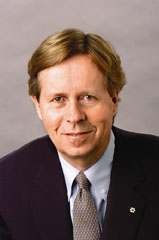
Robert Prichard
J. Robert S. Prichard is the Chairman of the Board of Bank of Montreal, Chairman of Metrolinx and Penguin Group Canada, and the non-executive chairman of Torys..
He is also past President, Chief Executive Officer, and Director of Metrolinx, President and Chief Executive Officer of Torstar Corporation, and President Emeritus of the University of Toronto, where he held the position from 1990 to 2000. He taught at the Faculty of Law starting in 1976, specializing in law and economics, and served as Dean from 1984 to 1990. He also taught at Yale (1982-1983) and Harvard (1983-1984; 2000-2001) Law School.. Mr. Prichard serves as a director for Barrick Gold Corporation, Onex Corporation, and George Weston Ltd. He also serves as a member of both Canada’s and Ontario’s Economic Advisory Council, trustee of the Hospital for Sick Children, director of the Toronto Community Foundation, and, chair of the Visiting Committee of Harvard Law School.
Mr. Prichard studied economics at Swarthmore College, received his M.B.A. from the University of Chicago, and earned law degrees at the University of Toronto and Yale University. He is an Officer of the Order of Canada, a Member of the Order of Ontario, and a Fellow of the Royal Society of Canada.
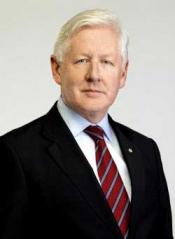 Hon. Bob Rae
Hon. Bob Rae
Bob Rae was elected eleven times to federal and provincial parliaments between 1978 and 2013. Mr. Rae was Ontario’s 21st Premier, from 1990 to 1995 and served as interim leader of the Liberal Party of Canada from 2011 to 2013. He has experience at the highest levels of government in Canada and was an active participant in some of the most the important constitutional talks of the day. He currently works as a senior partner at Olthuis Kleer Townshend LLP, with a focus on first nations, aboriginal, and governance issues. He teaches at the University of Toronto School of Governance and Public Policy.
Mr. Rae has a B.A. and an LL.B. from the University of Toronto and was a Rhodes Scholar in 1969. He obtained a B.Phil. degree from Oxford University in 1971 and was named a Queen’s Counsel in 1984. He has received numerous honorary degrees and awards from Canadian and foreign universities, colleges, and organizations. He was appointed to Her Majesty’s Privy Council for Canada in 1998, was appointed an Officer of the Order of Canada in 2000, and was appointed an Officer of the Order of Ontario in 2004.
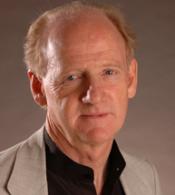 John Ralston Saul
John Ralston Saul
John Ralston Saul, a long-time champion of freedom of expression, served as President of PEN International from October 2009 until October 2015. An award-winning essayist and novelist, he has had a growing impact on political and economic thought in many countries. Declared a “prophet” by TIME magazine, he is included in the prestigious Utne Reader’s list of the world’s 100 leading thinkers and visionaries. His 14 works have been translated into 28 languages in 37 countries.
He completed an Honours B.A. at McGill University in political science and history in 1969, and a Ph.D. at King’s College, University of London in 1972. He is Co-Chair of the Institute for Canadian Citizenship, along with his wife Adrienne Clarkson. He is a Companion of the Order of Canada, the Order of Ontario, a Chevalier in the Ordre des Arts et des Lettres of France, and has 19 honourary degrees.
